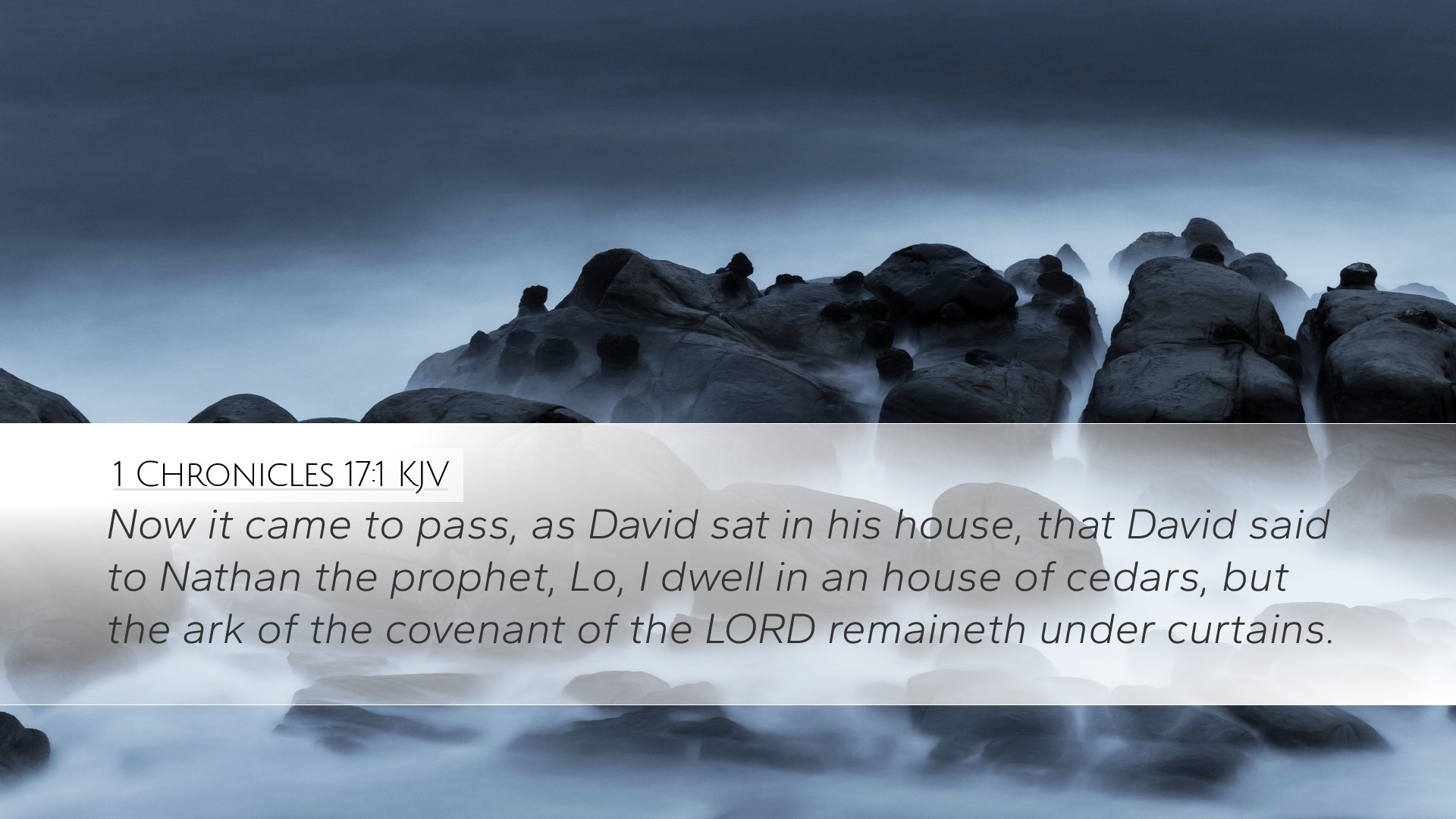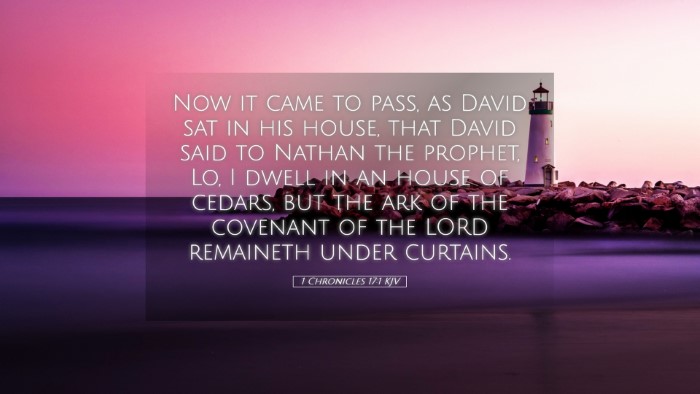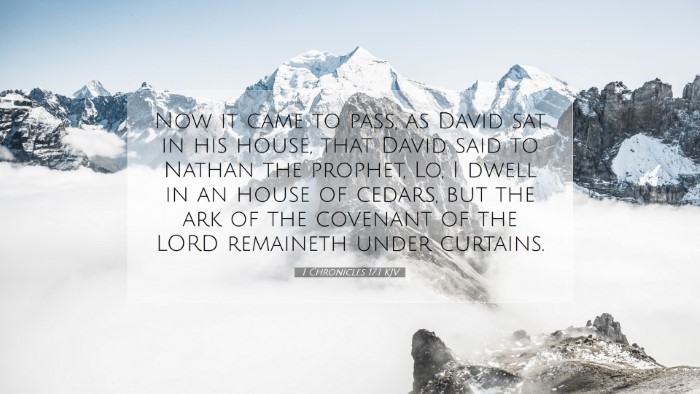Commentary on 1 Chronicles 17:1
Verse: 1 Chronicles 17:1 (KJV) - "Now it came to pass, as David sat in his house, that David said to Nathan the prophet, Lo, I dwell in an house of cedars, but the ark of the covenant of the LORD remaineth under curtains."
Introduction
This verse serves as a pivotal moment in the narrative of David's reign, encapsulating the heart of a king desiring a house for the Lord. It reflects deep theological implications regarding God's dwelling among His people and the nature of worship. David's expression of concern for the dignity of God's presence invites theological reflection on the relationship between the sacred and the secular.
Historical Context
In the context of Israel's history, David had recently established Jerusalem as the political and spiritual center. The former tabernacle, which housed the Ark of the Covenant, was a makeshift arrangement. This situation likely stirred in David a desire that God should have a more permanent and dignified place of worship.
Matthew Henry: In his commentary, Henry highlights that David, despite his own comfort, was acutely aware of the disparity between his royal residence and the transient nature of the Lord's presence among His people. This awareness speaks volumes about David’s heart for genuine worship and recognition of God’s sovereignty.
David's Reflection
David's contemplation leads him to speak with Nathan the prophet, representing a significant step towards God-centered leadership. His statement, "I dwell in an house of cedars," implies a recognition of the blessings he had received, juxtaposed against the unadorned tabernacle of the Lord.
Albert Barnes: Barnes notes that David's desire stemmed from a pure motive of glorifying God. He emphasizes that the king’s intention was not merely for his own honor but to elevate the place of divine worship, underscoring the essence of true leadership that seeks to honor God above self.
The Role of Nathan
Nathan, as a prophet, serves as a critical intermediary in this exchange. His initial response to David is one of encouragement, which later leads to divine revelation regarding the building of the temple.
Adam Clarke: Clarke points to the prophetic role of Nathan, viewing it as a critical ministry that connects the king's ambitions with God's will. This connection highlights the importance of prophetic voices in guiding leaders, and the need for spiritual discernment in matters of worship and service to God.
Divine Will Revealed
After this interaction, God reveals to Nathan His thoughts regarding a temple. This reveals God's plan not only for the construction of a physical dwelling but a deeper theological truth about God's nature and relationship with His people.
In the subsequent verses, God makes it clear that though David's desire was noble, he would not be the one to build the temple. This indicates God’s sovereignty and the unfolding of His plan through David’s lineage, ultimately culminating in the promise of the Messiah.
Theological Implications
This passage opens a rich vein of theological reflection:
- God’s Desire to Dwell Among His People: The existence of the ark and the subsequent instructions for a temple demonstrate God's commitment to being present with His people.
- The Nature of Worship: David’s desire for a permanent dwelling place for God highlights the importance of worship environments that reflect the glory of God.
- The Foreshadowing of Christ: The promise made to David concerning his descendant serves as a foreshadowing of Jesus, who embodies the ultimate presence of God among humanity.
Conclusion
1 Chronicles 17:1 encapsulates a moment where the heart of a leader aligns with the will of God. It serves as a reminder to pastors, students, theologians, and scholars of the importance of pursuing God’s glory in their ministries and lives.
Understanding David’s intentions, Nathan’s role, and the divine response provides a comprehensive framework for exploring themes of worship, leadership, and the fulfillment of God’s promises.


